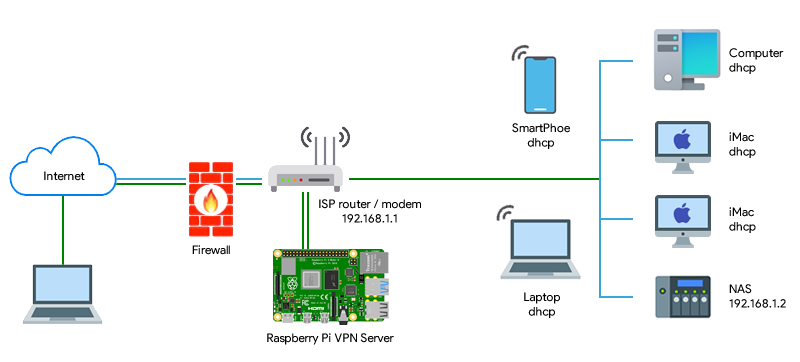How to Install VPN on Raspberry Pi
Are you looking to enhance the security of your Raspberry Pi device by installing a VPN? Well, you’re in the right place! VPN (Virtual Private Network) technology allows you to establish a secure and encrypted connection to another network over the internet. In this guide, we will walk you through the step-by-step process of setting up a VPN on your Raspberry Pi.
Step 1: Update Raspberry Pi
Before you begin installing the VPN, make sure your Raspberry Pi’s operating system is up to date. Open a terminal window and run the following commands:
sudo apt update
sudo apt upgrade
Step 2: Install OpenVPN
OpenVPN is a popular open-source VPN software that will allow you to set up your own VPN server. To install OpenVPN, run the following command in the terminal:
sudo apt install openvpn
Step 3: Configure OpenVPN
Once OpenVPN is installed, you will need to configure the software. You can find sample configuration files in /usr/share/doc/openvpn/examples/sample-config-files. Copy the files to the OpenVPN directory with the following command:
sudo cp /usr/share/doc/openvpn/examples/sample-config-files/server.conf.gz /etc/openvpn/
sudo gzip -d /etc/openvpn/server.conf.gz
Next, edit the server configuration file using a text editor:
sudo nano /etc/openvpn/server.conf
Make the necessary changes to the configuration file, such as defining the network settings, encryption, and authentication methods.
Step 4: Start OpenVPN Service
Once the configuration is complete, you can start the OpenVPN service by running the following command:
sudo systemctl start openvpn@server
To ensure that the OpenVPN service starts automatically on boot, run the following command:
sudo systemctl enable openvpn@server
Step 5: Configure Client Devices
Once the OpenVPN server is up and running, you will need to configure your client devices to connect to the VPN. You can use VPN client software or manually configure the connection settings on your device. Consult the documentation of your VPN client for further instructions.
And there you have it! You have successfully installed a VPN on your Raspberry Pi, enhancing the security and privacy of your network. Enjoy secure browsing and peace of mind knowing your data is encrypted and protected.
